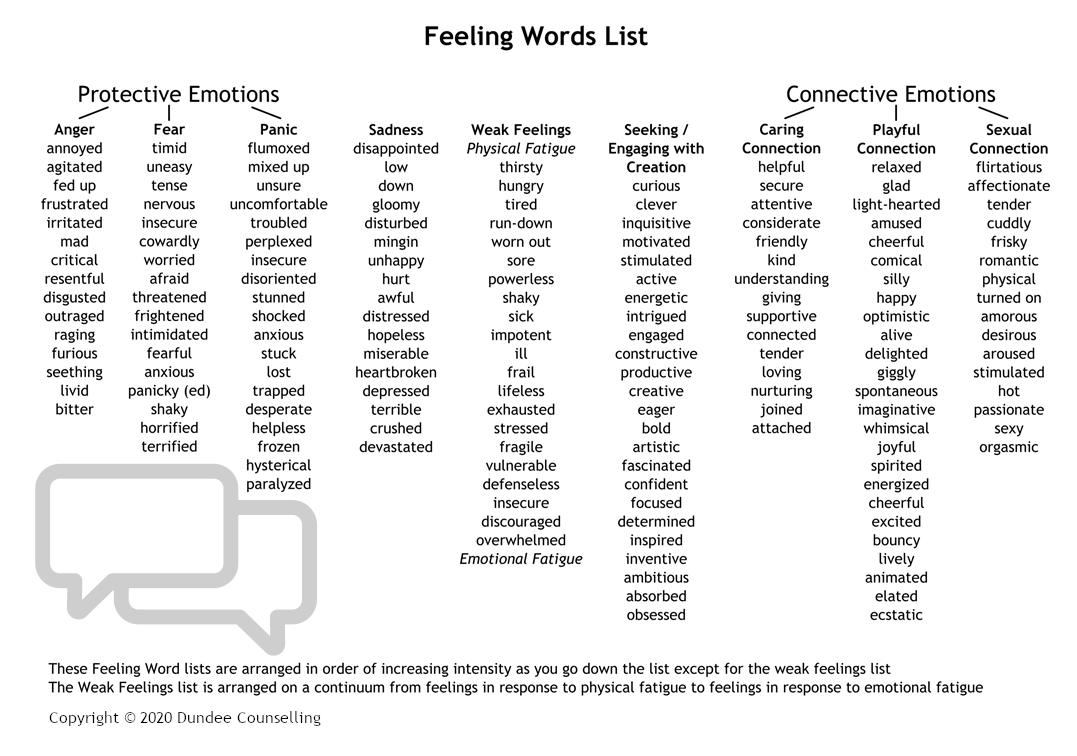The Power of an Expansive Emotional Vocabulary for Personal Growth
A ‘Feeling Words List’ in psychological terms extends far beyond its apparent simplicity. It’s not just a list of terms; it’s a key instrument for emotional articulation, self-awareness, and personal development, particularly in practices like journaling.
Enhancing Emotional Articulation
A Feeling Words List plays a pivotal role in improving emotional articulation. Many individuals are often confined to using basic emotional descriptors such as ‘happy,’ ‘sad,’ or ‘angry.’ This restricted vocabulary limits their ability to fully express their emotional states. Access to a wider range of feeling words allows for more precise identification and expression of emotions. For example, distinguishing between ‘frustration,’ ‘disappointment,’ and ‘resentment’ leads to more effective communication and better understanding in interpersonal relationships.
Facilitating Emotional Intelligence
An extensive array of feeling words enhances emotional intelligence, which involves understanding and managing one’s own emotions and empathizing with others’. By exploring different emotional terms, individuals gain deeper insights into their emotional landscape, boosting self-awareness—a fundamental aspect of emotional intelligence.
Enriching Journaling Practice
In the realm of journaling, a Feeling Words List is incredibly useful. Journaling is a reflective practice that often centers on exploring and understanding one’s emotional experiences. With a varied emotional vocabulary, journal writers can delve deeper into their emotional states, offering clarity and insight into their experiences. This practice not only aids in processing complex emotions but also contributes to personal growth and emotional healing. By accurately naming their emotions, individuals can trace patterns in their emotional responses, leading to greater self-understanding and emotional regulation over time.
Promoting Mental Health and Well-being
The consistent use of a Feeling Words List can positively impact mental health and well-being. Identifying and acknowledging emotions reduces the likelihood of emotional suppression, which can lead to stress, anxiety, and depression. Additionally, a nuanced understanding of one’s emotions can lead to improved coping mechanisms and decision-making, as individuals become more adept at responding to their emotional signals constructively.

Click here to view the The Feeling Word List in a PDF
